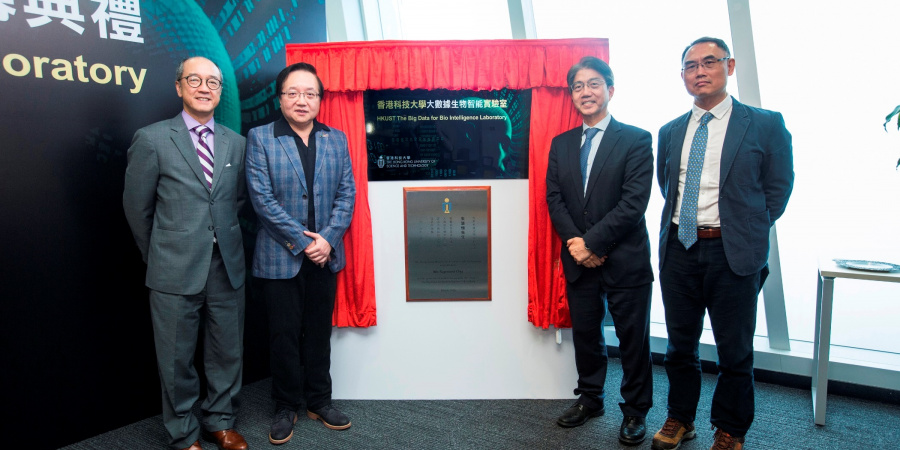HKUST Established Laboratory on Big Data for Bio Intelligence
The Hong Kong University of Science and Technology (HKUST) celebrated the opening of the HKUST The Big Data for Bio Intelligence Laboratory, which is dedicated to designing data analytic solutions for big data in biology and healthcare to advance knowledge and improve people’s living.
The HKUST The Big Data for Bio Intelligence Laboratory, located in HKUST, will be co-directed by Prof Qiang Yang, New Bright Professor of Engineering, Chair Professor and Head of Department of Computer Science and Engineering, and Prof Yang Wang, Chair Professor and Head of Department of Mathematics. The Laboratory aims to become a leading laboratory in the research of big data for biological intelligence and to bridge the knowledge gap between academics and practitioners.
The establishment of the Laboratory was made possible by a generous donation given to the University by Mr Raymond Chu. Officiating at the opening ceremony, Mr Chu said, “As an undistracted industrialist for over 30 years, I am pleased to be able to contribute to the development of a fine university celebrating its 25th anniversary. Through connections with the US and Hong Kong academia, and in particular, Prof Qiang Yang and his multi-disciplinary team at HKUST, I landed on the field of big data with applications on biomedicine and sustainable-living. I hope that my support could enhance the University’s research efforts with the broad aim to benefit humanity.”
HKUST President Prof Tony F Chan said, “I would like to extend my wholehearted gratitude to Mr Chu for his generosity and support in establishing the Laboratory. Big data applications will revolutionize the way how human beings live in many ways. Big data research is also aligned with HKUST’s strategic directions. With the establishment of the new Laboratory, I am excited that HKUST will be able to help bring new insights into the rapid development of big data research.”
“Mr Chu is a visionary in the development of bio-intelligence, integrating new big data solutions into organic farming systems and modern medical practices for the betterment of mankind. The Laboratory will investigate novel big data solutions such as deep learning and transfer learning to enhance data analysis applications,” said Prof Qiang Yang.
Research areas of the Laboratory include new big data solutions such as “deep learning solution”, which generates rich features to describe a machine learning problem in order to let computers make decisions, and “transductive transfer learning” – allowing computer models to be easily adapted for use in many different application domains. It will also focus on genetic farming with objectives of making the process more automatic and user-friendly and scaling it to cater to very large data sources.

